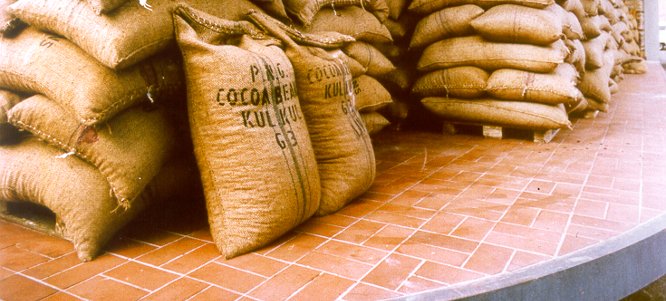Cocoa germplasm utilization and conservation: a global approach
DURATION: |
Six years after one year extension |
LOCATION: |
BRAZIL, CAMEROON, COTE D’IVOIRE, ECUADOR, GHANA, MALAYSIA, NIGERIA, PAPUA NEW GUINEA, TRINIDAD AND TOBAGO, VENEZUELA |
NATURE OF PROJECT: |
Research and Development |
ESTIMATED TOTAL COST: |
US$ 9,985,940 |
FINANCING COMMITED BY CFC: |
US$ 2,942,000 |
CO-FINANCING: |
US$ 1,940,480 |
COUNTERPART FINANCING: |
US$ 5,104,231 |
PROJECT EXECUTING AGENCY (PEA): |
Bioversity International |
PROJECT SUPERVISORY BODY: |
International Cocoa Organization (ICCO) |
PROJECT STARTING DATE: |
April 1998 |
COMPLETION DATE: |
March 2004 |
Brief DescriptionThe main activities of the project were international and local clone trials; internationally co-ordinated hybrid selection trials; population breeding; germplasm enhancement; germplasm conservation, characterization and preliminary evaluation; distribution and quarantine of interesting genotypes; and exchange of information and workshops.
|
Project ObjectivesThe project aimed to develop and distribute improved, pest and disease resistant varieties of cocoa planting materials by making optimal use of cocoa germplasm, which produces good quality cocoa and achieves higher and sustainable production levels. This was achieved through screening, selecting and breeding of improved cocoa genotype with economically important traits (yields, resistance to pests and diseases, quality, etc.,), collected from among the great diversity of the germplasm existing in the cocoa producing countries participating in the project.
|
Project ResultsA total of 94 ha of international and local trials of new cocoa varieties were established at the different project sites, compared to 55 ha originally planned. Evaluation of the positive characteristics carried out on cocoa genotypes in the collections and breeding trials resulted in the identification of 2,345 promising new selections that would be used in the future. International clone trials, established at ten sites in nine countries, permitted the evaluation of the stability of economically important traits of 20 selected cocoa accessions distributed from intermediate quarantine centres. Resistance to the three major species of Phytophthora proved to be generally stable and good resistance was identified for nine genotypes.
|

